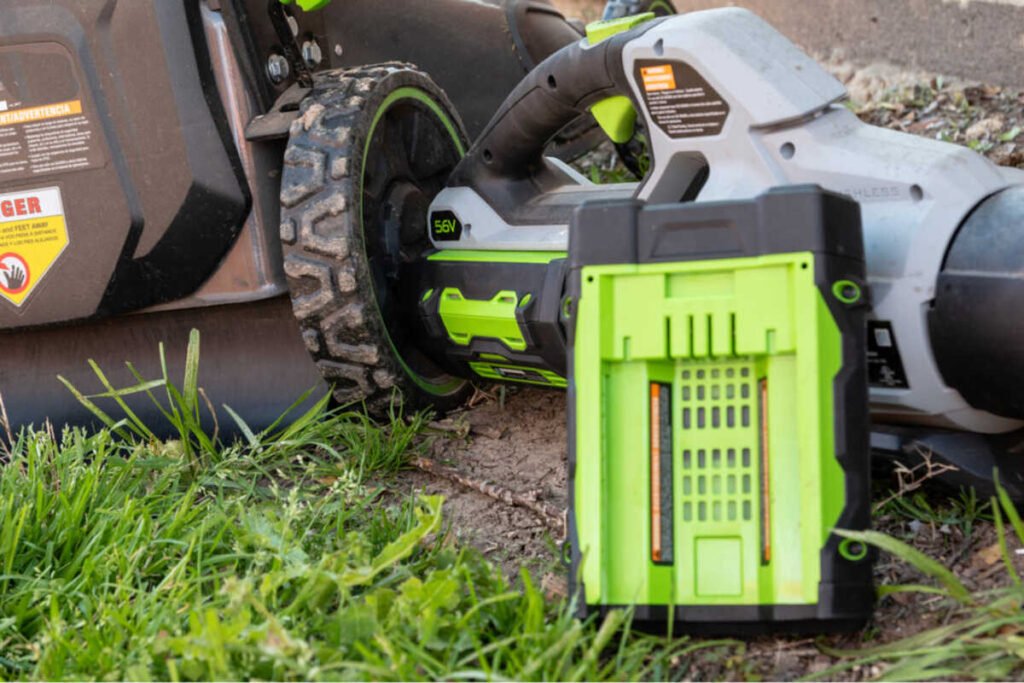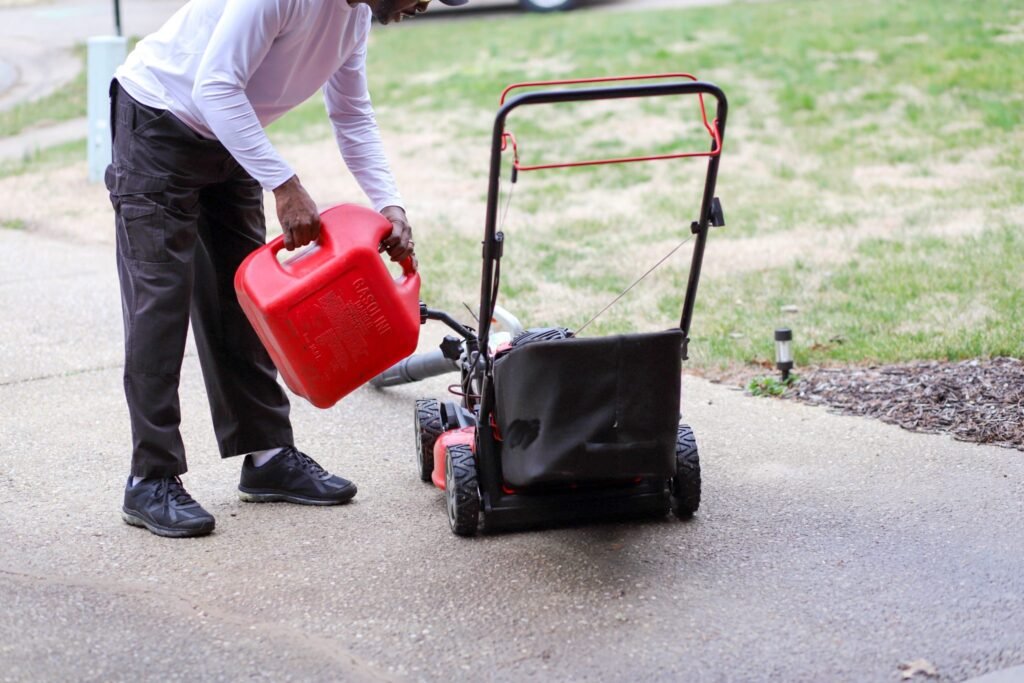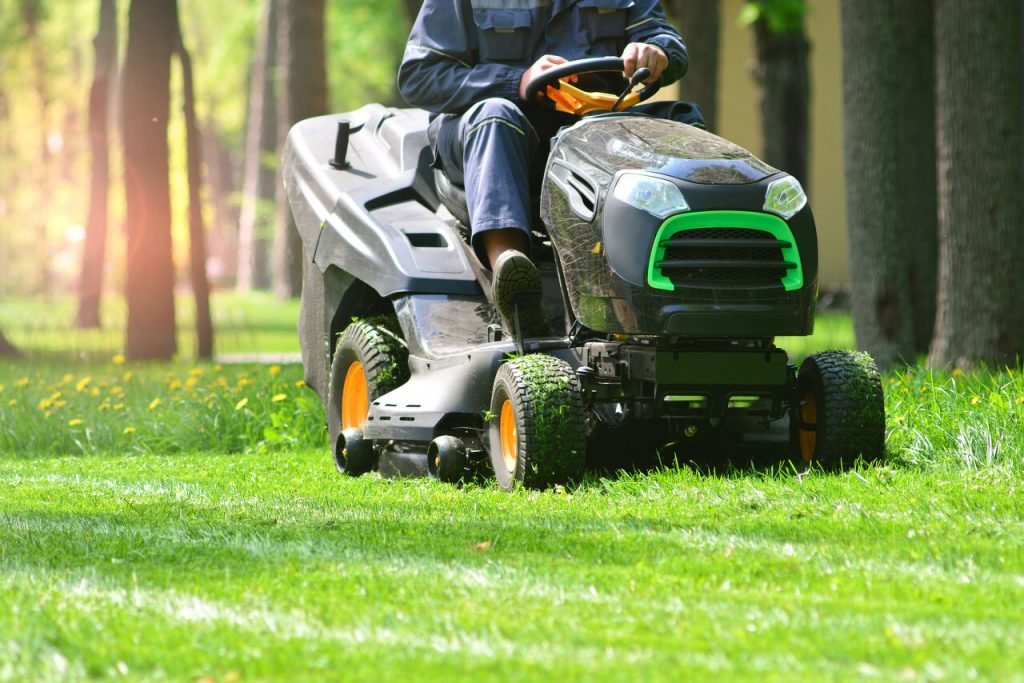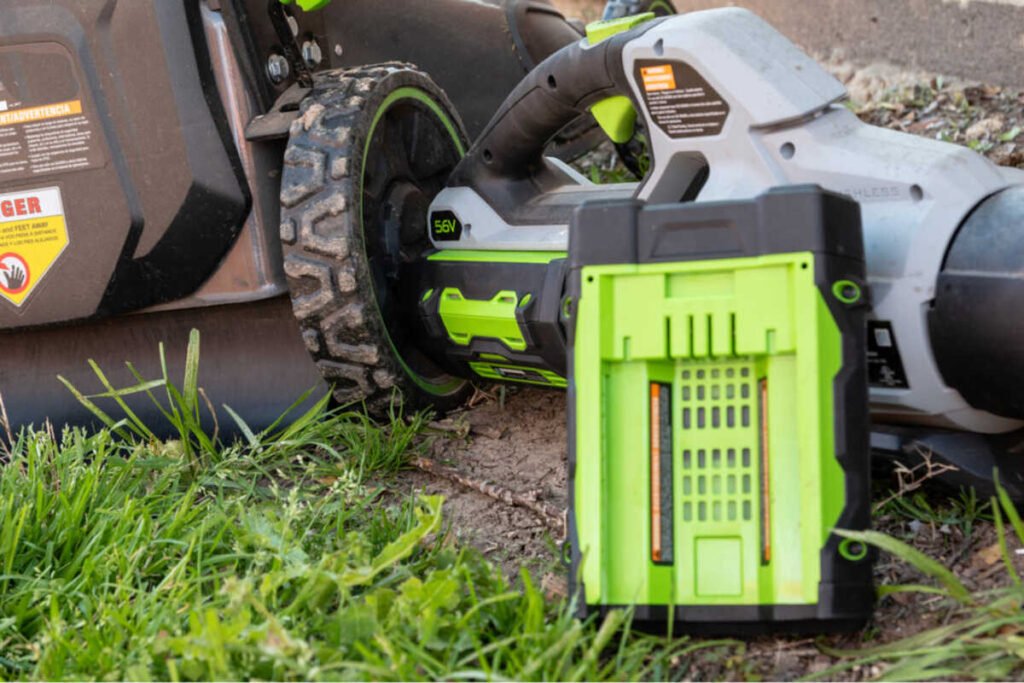Taking care of your lawn mower battery is essential if you want it to last longer and perform at its best. In this article, you will learn 10 practical tips that will help you extend the life of your lawn mower battery. From proper storage techniques to regular maintenance, implementing these tips will not only save you money in the long run but also ensure that your lawn mower is always ready to tackle the job. So, grab a pen and paper and get ready to discover how you can make your lawn mower battery last longer and keep your yard looking its best all season long.

This image is property of www.lawnstarter.com.
1. Choose a High-Quality Battery
Consider the battery type
When choosing a battery for your lawn mower, it is important to consider the battery type that will best suit your needs. There are typically two types of batteries for lawn mowers: lead-acid batteries and lithium-ion batteries. Lead-acid batteries are more affordable, but they are heavier and require regular maintenance. On the other hand, lithium-ion batteries are lighter, have a longer lifespan, and require minimal maintenance. Consider your budget and preferences when selecting the battery type.
Look for a battery with a high capacity
Battery capacity refers to the amount of energy the battery can store. It is measured in ampere-hours (Ah). When choosing a lawn mower battery, opt for a battery with a high capacity to ensure longer operating times between charges. A higher capacity battery will allow you to mow your lawn without interruption and provide sufficient power for your mower’s needs.
Check the battery warranty
Before purchasing a lawn mower battery, it is crucial to check the battery warranty. A good-quality battery should come with a warranty that covers any defects and provides replacement or repair services. A warranty ensures that you can get assistance if you encounter any issues with your battery. Look for batteries with longer warranty periods to give you peace of mind and protect your investment.
2. Properly Store the Battery
Clean the battery before storage
Before storing your lawn mower battery, it is recommended to clean it to remove any dirt or debris. You can use a soft cloth or brush to gently wipe away any visible grime on the battery casing and terminals. Cleaning the battery ensures that there are no potential contaminants that could affect its performance during storage.
Remove the battery from the mower
When storing your lawn mower for an extended period, it is important to remove the battery. Leaving the battery in the mower can lead to self-discharge, which can reduce its overall lifespan. By removing the battery, you minimize the risk of any power loss or damage over time. Be sure to follow the manufacturer’s instructions on how to safely remove the battery from your specific mower model.
Store the battery in a cool and dry place
Proper storage is crucial to maintaining the health and longevity of your lawn mower battery. It is recommended to store the battery in a cool and dry place, away from direct sunlight and extreme temperatures. Excessive heat can degrade the battery, while moisture can lead to corrosion. Find a clean, well-ventilated area such as a garage or shed to store your battery. Consider using a battery storage case or bag to protect it from dust and moisture.

This image is property of www.aces.edu.
3. Charge the Battery Correctly
Use a compatible charger
To ensure proper charging of your lawn mower battery, always use a compatible charger recommended by the battery manufacturer. Using the wrong charger can lead to overcharging or undercharging, which can shorten the battery’s lifespan. Check the specifications of your battery and purchase a charger specifically designed for it. It is worth investing in a charger that offers features such as automatic shut-off or trickle charging to prevent overcharging.
Follow the manufacturer’s instructions
Each lawn mower battery may have specific instructions for charging. It is essential to carefully read and follow the manufacturer’s instructions provided with the battery and charger. These instructions will outline the recommended charging time, voltage levels, and any additional precautions or guidelines to follow. Adhering to these instructions will ensure that your battery is charged correctly and safely.
Avoid overcharging the battery
Overcharging a battery can lead to damage and reduce its overall lifespan. Once your lawn mower battery is fully charged, unplug it from the charger to prevent overcharging. Leaving the battery connected to the charger for an extended period can cause excessive heat buildup, which can harm the battery’s internal components. Regularly check the battery’s charge level and disconnect it from the charger when it reaches a full charge.
4. Avoid Deep Discharges
Monitor the battery voltage
To prevent deep discharges, it is important to monitor the battery’s voltage regularly. Deep discharges occur when a battery is drained to extremely low levels. Most lawn mower batteries have built-in voltage indicators or charge level displays. Use these indicators or a voltmeter to monitor the battery’s voltage and ensure it does not fall below a recommended minimum level. This will help you identify when it is time to recharge the battery.
Recharge the battery before it drains completely
It is advisable to recharge your lawn mower battery before it drains completely. Allowing the battery to fully discharge can cause irreversible damage and shorten its lifespan. Keep track of the battery’s charge level and recharge it when it reaches around 20-30% capacity. This practice will help maintain the battery’s health and prevent unnecessary strain on its cells.
Avoid using the mower on a low battery
Using your lawn mower on a low battery can lead to poor performance and potential damage. When the battery charge is low, the mower may struggle to maintain consistent power, resulting in uneven cutting or slower operation. Additionally, running a lawn mower on a low battery can further deplete its charge, increasing the risk of a deep discharge. It is best to recharge the battery before using the mower to ensure optimal performance.

This image is property of cdn.aftonvilla.com.
5. Keep the Battery Terminals Clean
Regularly inspect the battery terminals
It is important to regularly inspect the battery terminals for any signs of corrosion or damage. The battery terminals are the connection points between the battery and the lawn mower. Corrosion on the terminals can hinder proper electrical contact and affect the battery’s performance. Inspect the terminals for any white or greenish deposits, rust, or loose connections.
Clean the terminals with a battery cleaning solution or vinegar
If you notice any corrosion or buildup on the battery terminals, it is necessary to clean them. You can use a battery cleaning solution or a mixture of vinegar and water to remove corrosion. Dip a clean cloth or small brush into the solution and gently scrub the terminals until the corrosion is removed. Rinse the terminals with water afterward and dry them thoroughly with a clean cloth.
Use a wire brush to remove corrosion
For stubborn or heavy corrosion on the battery terminals, you may need to use a wire brush. Carefully scrub the terminals with the wire brush to remove the corrosion, being cautious not to damage or break the terminals. After brushing off the corrosion, follow the cleaning process mentioned earlier by rinsing with water and drying thoroughly.
6. Perform Regular Maintenance
Check the battery for any damages or leaks
Regularly inspect the battery for any physical damages or leaks. Physical damages can compromise the battery’s internal components and affect its performance. Look for cracks, bulges, or any signs of impact on the battery casing. Additionally, check for any signs of leaks, such as fluid seeping from the battery. If you notice any damages or leaks, it is vital to address them promptly to prevent further deterioration.
Keep the battery clean and free from dirt and debris
Maintaining a clean battery is essential to its longevity. Regularly wipe the battery casing with a damp cloth to remove any dirt, dust, or debris that may accumulate over time. This practice not only improves the appearance of the battery but also prevents potential damage caused by the buildup of contaminants. Keeping the battery clean ensures optimal performance and reduces the risk of corrosion.
Ensure the battery is securely connected to the mower
Periodically check the battery’s connection to the lawn mower to ensure it is secure and tight. Vibration and movement during mowing can loosen the battery connections over time. Loose connections can lead to power loss or interruptions, affecting the overall performance of your lawn mower. If you find any loose connections, carefully tighten them to maintain a reliable electrical connection.
This image is property of styla-prod-us.imgix.net.
7. Avoid Exposure to Extreme Temperatures
Protect the battery from extreme heat
Extreme heat can have detrimental effects on a lawn mower battery. It can cause the battery to overheat, which can damage its internal components and reduce its overall lifespan. Therefore, it is crucial to protect the battery from exposure to excessive heat, especially during long periods of storage. Avoid leaving the battery in direct sunlight or in hot environments such as a car trunk.
Store the battery in a temperature-controlled environment
To minimize the impact of extreme temperatures on the battery, it is recommended to store it in a temperature-controlled environment. Find a cool and dry place for storage, such as a garage or basement. Extreme temperature fluctuations can also affect the battery’s performance, so maintaining a consistent temperature is important. By storing the battery in a controlled environment, you can prolong its lifespan and ensure optimal performance.
Avoid using the mower in extremely cold weather
Extreme cold weather can also affect the performance of a lawn mower battery. Cold temperatures can cause the battery to lose its charge quickly and reduce its overall capacity. If possible, avoid using the mower in extremely cold weather conditions. If you must use it, try to store the battery in a warmer location before installation to maintain its charge. Keep in mind that extreme cold can also make starting the mower more challenging, so take necessary precautions.
8. Use the Mower According to Battery Needs
Avoid excessive mowing on a single charge
To extend the life of your lawn mower battery, avoid excessive mowing on a single charge. Pushing the battery to its limits by continuously mowing for long periods can strain its cells and reduce its overall lifespan. It is recommended to plan your mowing sessions accordingly and avoid overtaxing the battery. Take breaks between mowing sessions to allow the battery to cool down and recharge if necessary.
Adjust the cutting height to reduce battery consumption
The cutting height of your lawn mower can impact the battery consumption. Lower cutting heights require more power to cut through the grass, leading to increased battery usage. To extend the battery life, consider adjusting the cutting height to a slightly higher setting. This adjustment will reduce the strain on the battery and allow it to operate more efficiently. Additionally, keeping your lawn well-maintained can also contribute to reducing the workload on the battery.
Consider using the mower in Eco mode
Some lawn mower models offer an Eco mode or a similar energy-saving feature. This mode adjusts the mower’s power output to conserve battery energy. Using the mower in Eco mode can help prolong the battery life by optimizing energy consumption. Consult your mower’s manual to determine if it has an Eco mode and how to enable it. This feature can be particularly useful for larger lawns or when operating the mower for extended periods.

This image is property of cdn.aftonvilla.com.
9. Monitor and Maintain the Cutting Blades
Regularly inspect and sharpen the cutting blades
The cutting blades of your lawn mower play a crucial role in its performance and battery usage. Dull or damaged blades can strain the mower’s motor and increase the energy required to cut the grass. It is important to regularly inspect the cutting blades and sharpen them as needed. Sharp blades ensure clean and efficient cuts, reducing the stress on the battery and improving overall performance.
Ensure the blades are properly balanced
Imbalanced cutting blades can cause vibrations in the mower, leading to increased battery consumption and potential damage. To maintain the blades’ balance, visually inspect them for any signs of imbalance, such as excessive wear on one side. If you notice any imbalances, consider having the blades professionally balanced or replace them if necessary. Balanced blades contribute to smooth operation and help optimize the battery’s performance.
Clean the underside of the mower deck to prevent grass buildup
Grass clippings and debris can accumulate on the underside of the mower deck during operation. This buildup can obstruct the cutting blades and increase resistance, resulting in higher energy consumption by the mower. Regularly clean the underside of the mower deck with a brush or hose to remove any grass clippings or debris. This practice reduces the strain on the mower and battery, leading to improved efficiency and prolonged battery life.
10. Seek Professional Help if Needed
Consult a professional for battery maintenance and repair
If you encounter any issues or have concerns about your lawn mower battery, it is advisable to consult a professional. Battery maintenance and repair are best handled by experts who have the knowledge and experience to diagnose and address any problems. They can provide guidance, offer solutions, and perform necessary repairs or battery replacements if required. Prioritize your safety and the longevity of your battery by seeking professional help when needed.
Follow the manufacturer’s guidelines for servicing
To ensure your lawn mower battery’s longevity, it is crucial to follow the manufacturer’s guidelines for servicing. Regular maintenance, such as cleaning, inspection, and lubrication, may be recommended at specific intervals. Additionally, the manufacturer may provide specific instructions for battery storage, charging, and usage. Adhering to these guidelines helps maximize the lifespan of the battery and ensures optimal performance throughout its usage.
Consider professional battery testing and replacement
Over time, even with proper maintenance, a lawn mower battery may reach its end of life. If you notice significant drops in performance, reduced operating times, or repeated issues despite following maintenance practices, consider having your battery professionally tested. A professional battery test can determine the battery’s overall health and capacity. If the test reveals that the battery is no longer viable, it may be necessary to replace it with a new one. Professional guidance can help you select a suitable replacement and ensure a smooth transition.
In conclusion, extending the life of your lawn mower battery requires proactive maintenance, proper usage, and adherence to specific guidelines. By choosing a high-quality battery, storing it correctly, charging it properly, avoiding deep discharges, keeping the terminals clean, performing regular maintenance, preventing exposure to extreme temperatures, using the mower efficiently, monitoring and maintaining the cutting blades, and seeking professional help when necessary, you can maximize the lifespan and performance of your lawn mower battery. Implement these tips and enjoy a longer-lasting, reliable battery for your lawn mowing needs.






